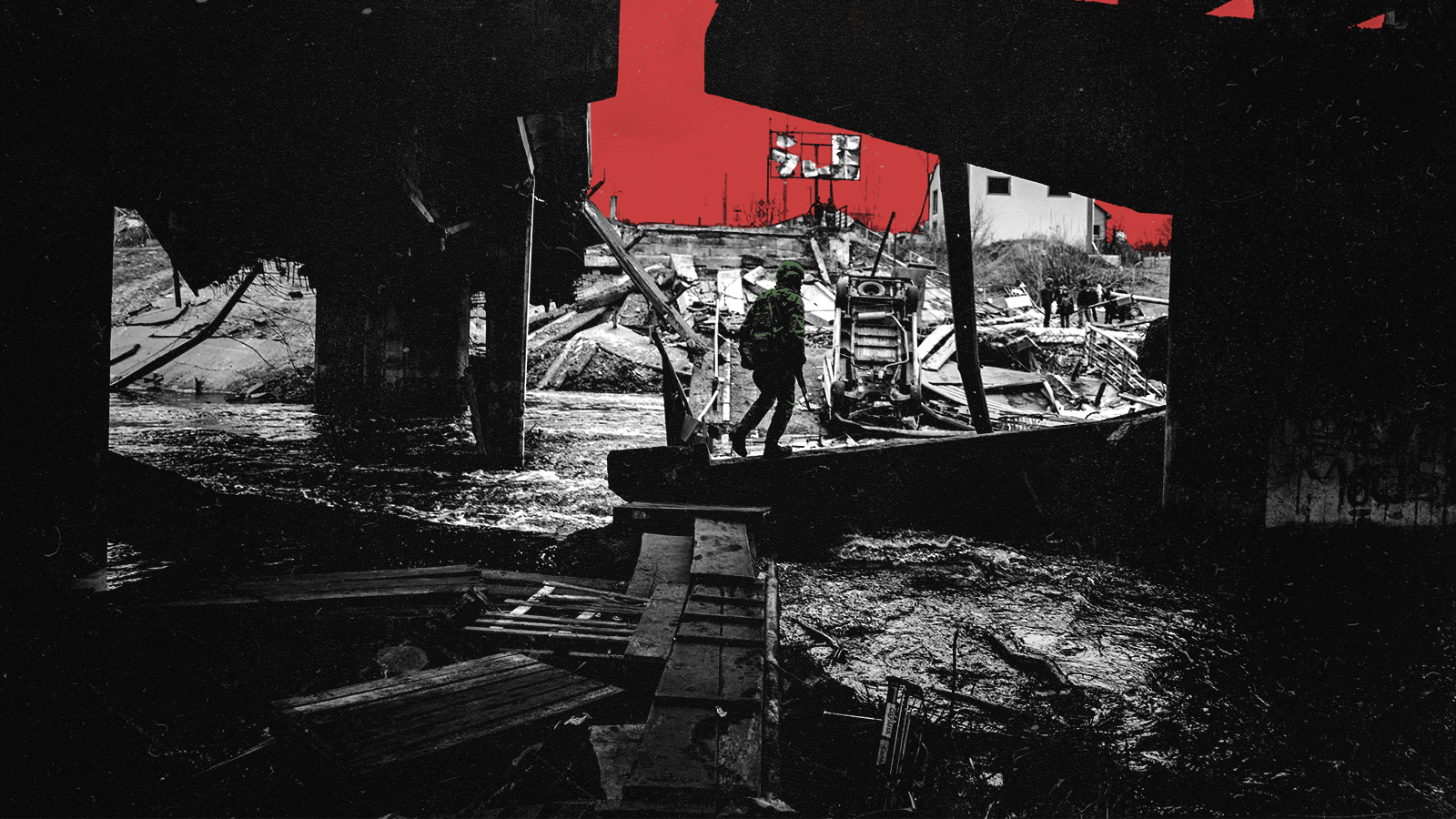Russia's invasion of Ukraine makes neocons — not national conservatives — look bad


A free daily email with the biggest news stories of the day – and the best features from TheWeek.com
You are now subscribed
Your newsletter sign-up was successful
There is a growing sense in some quarters that the Russian invasion of Ukraine has been a setback for national conservatism. Many on the right instinctively see the Kremlin's war differently than the nascent populists do, and some of the latter have genuinely allowed reasonable criticisms of the West's missteps, especially on NATO expansion, to bleed into credulity about Russia's claims.
But it's not entirely clear that anything going on in Ukraine particularly discredits the new nationalists' ideas, at least in their higher-brow form, as opposed to perhaps some of their most vocal personalities. And that's not just because the media is still full of commentators who sold the Iraq War to Americans, and who are now explaining the Russo-Ukrainian War to us, even at times leading the charge on the effort to dismiss rivals they brand as the new unpatriotic conservatives.
What the war shows, though, is the vital importance of national borders and sovereignty and the limits of well-intentioned supranational organizations to secure those goods. The Ukrainians defending their homes and families show the virtues of nationalism defined as loyalty to an actual place rather than just an idea, while Russian President Vladimir Putin's bombardment of Ukraine's cities illustrates how exploiting these natural sentiments for raw political power can transform it into a vice.
The Week
Escape your echo chamber. Get the facts behind the news, plus analysis from multiple perspectives.

Sign up for The Week's Free Newsletters
From our morning news briefing to a weekly Good News Newsletter, get the best of The Week delivered directly to your inbox.
From our morning news briefing to a weekly Good News Newsletter, get the best of The Week delivered directly to your inbox.
The challenges Russia has faced do more to call into question neoconservative assumptions about war — the notion that military aggressors gobble up countries like Pac-Man and become more powerful with each meal — than those of their critics on the right. Instead, war is often wasteful and inherently destructive, forcing countries to spend down their blood and treasure.
On the eve of the NATO summit in Brussels, Virtue of Nationalism author Yoram Hazony was exhorting national conservatives assembled in that city to look at Ukraine as a wake-up call for Europe to take greater responsibility for its own security and to free up the United States to focus on China, whose growing global reach in recent years has not come primarily from war.
It's certainly possible that a relatively small group of pro-Putin eccentrics will tarnish the newer currents flowing on the right. But Russia's bloody war in Ukraine looks like a much stronger rebuke to those who claimed to have witnessed the end of history.
A free daily email with the biggest news stories of the day – and the best features from TheWeek.com
W. James Antle III is the politics editor of the Washington Examiner, the former editor of The American Conservative, and author of Devouring Freedom: Can Big Government Ever Be Stopped?.
-
 Gwen John: Strange Beauties – a ‘superb’ retrospective
Gwen John: Strange Beauties – a ‘superb’ retrospectiveThe Week Recommends ‘Daunting’ show at the National Museum Cardiff plunges viewers into the Welsh artist’s ‘spiritual, austere existence’
-
 Should the EU and UK join Trump’s board of peace?
Should the EU and UK join Trump’s board of peace?Today's Big Question After rushing to praise the initiative European leaders are now alarmed
-
 Antonia Romeo and Whitehall’s women problem
Antonia Romeo and Whitehall’s women problemThe Explainer Before her appointment as cabinet secretary, commentators said hostile briefings and vetting concerns were evidence of ‘sexist, misogynistic culture’ in No. 10
-
 Epstein files topple law CEO, roil UK government
Epstein files topple law CEO, roil UK governmentSpeed Read Peter Mandelson, Britain’s former ambassador to the US, is caught up in the scandal
-
 Iran and US prepare to meet after skirmishes
Iran and US prepare to meet after skirmishesSpeed Read The incident comes amid heightened tensions in the Middle East
-
 Israel retrieves final hostage’s body from Gaza
Israel retrieves final hostage’s body from GazaSpeed Read The 24-year-old police officer was killed during the initial Hamas attack
-
 China’s Xi targets top general in growing purge
China’s Xi targets top general in growing purgeSpeed Read Zhang Youxia is being investigated over ‘grave violations’ of the law
-
 Panama and Canada are negotiating over a crucial copper mine
Panama and Canada are negotiating over a crucial copper mineIn the Spotlight Panama is set to make a final decision on the mine this summer
-
 Why Greenland’s natural resources are nearly impossible to mine
Why Greenland’s natural resources are nearly impossible to mineThe Explainer The country’s natural landscape makes the task extremely difficult
-
 Iran cuts internet as protests escalate
Iran cuts internet as protests escalateSpeed Reada Government buildings across the country have been set on fire
-
 US nabs ‘shadow’ tanker claimed by Russia
US nabs ‘shadow’ tanker claimed by RussiaSpeed Read The ship was one of two vessels seized by the US military
